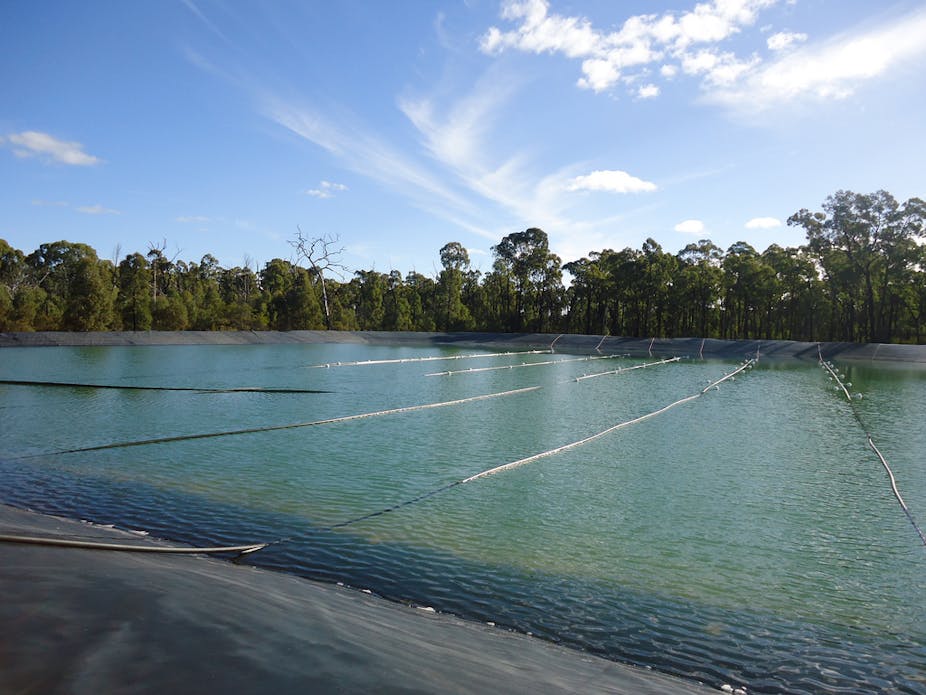The last week has seen the Australian coal seam gas (CSG) industry come under increasing scrutiny. Triggered by a gas explosion in the Darling Downs in Queensland, and legal action against BHP in the US, these seemingly separate incidents raise a bigger, more significant issue.
Is the regulation of the Australian CSG extraction industry safe? Or does CSG pose a significant threat in Australia, particularly to water and agricultural resources?
Australian CSG activities are regulated by state governments. The activity is mostly confined to NSW and Queensland.
In both states, the CSG activities take place where there are significant coal deposits. Therefore, the relevant Mining Act and Onshore Petroleum Act in each state govern these activities: the Onshore Petroleum Act for the extraction of the CSG, and the Mining Act for the extraction of the coal.
But a third piece of legislation in each state, the Water Act, is also relevant, since it regulates the use of surface and groundwater, including the use of water in the extraction of coal seam gas.
The regulation of CSG extraction appears complex, and it is. So much so that that affected farmers and some politicians are calling for a moratorium on the extraction of CSG until there is a better understanding of the effects of CSG extraction on underground water.
Earlier this week, Greens Deputy Leader Christine Milne labelled the developing CSG industry a “disaster”, and said coal industry expansion should end, especially in an era when we need to be moving away from investment in fossil fuels.
Senator Milne is not alone in her comments. Land owners on the Liverpool Plains in NSW have repeatedly called for licence holders of coal and CSG exploration licences to halt exploration activities until a catchment-wide spatial groundwater survey has been conducted and risks to groundwater have been identified.
The Liverpool Plains community is concerned that the existing NSW legislation will not protect their unique groundwater system from the effects of CSG exploration. The concerns of the Liverpool Plains landholders have been echoed by Australia’s peak water advisory body, the National Water Commission.
In December 2010, the National Water Commissioner called for improved management of the CSG industry, recognising that if the development of CSG is not adequately managed and regulated, the industry risks significant long-term and adverse impacts on surface and groundwater systems.
At the same time, the Commission released a position paper relating to CSG and water. This position paper acknowledges that CSG extraction poses potential risks to the sustainable management of water, particularly in the Great Artesian Basin. In the Basin, the process of “fraccing” (hydraulic fracturing of rocks with water to enable the gas to escape) could induce connection and cross-contamination between aquifers and affect groundwater quality.
The recent legal activity by landholders in Arkansas against BHP alleges that the use of fraccing has caused significant environmental damage, including poisoning water resources.
Similarly, CSG activities in agricultural areas of NSW and Queensland have prompted landholders to engage in legal action against companies engaged in CSG activities.
Earlier this week the National Farmers Federation opened its Australian Farmers Fighting Fund to underwrite the cost of legal action by 13 farm families in the Darling Downs area. This action is against the Queensland Government and Arrow Energy regarding the impact of CSG activities on water, soil and crops in the area.
In other legal action, the Caroona Coal Action Group on the Liverpool Plains in NSW has been involved in a protracted legal battle, spanning several years, in an attempt to secure a halt to CSG activities ahead of a groundwater study. The legal action by the Caroona Coal Action Group has also been supported by the Australian Farmers Fighting Fund.
Without more clarity in regulation covering CSG extraction in Australia, challenges to the legitimacy of the process are bound to continue.
If landholders are to feel secure, they need the protection of stronger laws.

